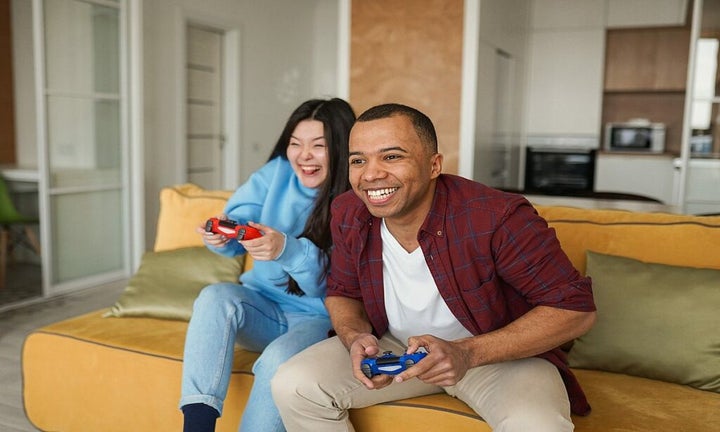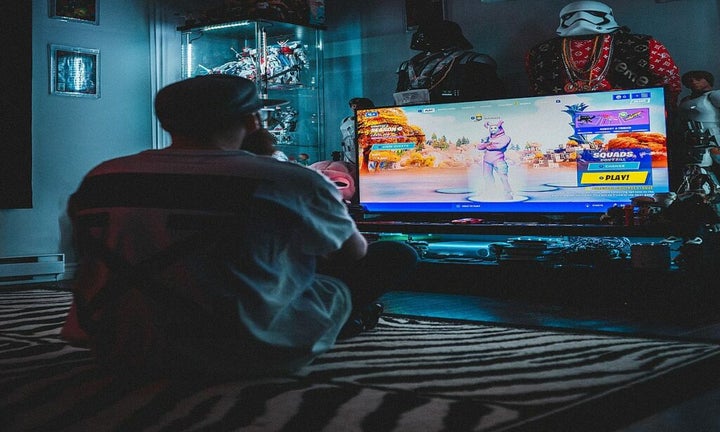In a world where over three billion people are hooked on video games, we often hear about the dangers of gaming too much. People worry about poor emotional health, bad diets, erratic sleep, and even mood problems like anxiety and aggression. But what if we told you that a new study is challenging these ideas, suggesting that gamers who are really into their games might be healthier than we thought?
Keep reading and find out how to respond when someone says things like, “You need to stop playing games.”

First thing first: The difference between engaged and addicted
With more than half of the world playing video games for about nine and a half hours a week on average, it’s no surprise that concerns about the health of gamers have grown.
We’ve even named it Internet Gaming Disorder (IGD). It’s a label for people who can’t seem to control how much they play video games and might have problems with their social lives, mood swings, or, in very rare cases, even violence. But there’s a big debate about whether IGD is the right diagnosis.
One of the problems with IGD is that it doesn’t separate the people who really enjoy playing games from those who have real problems because of it.

To figure this out, Dr. Catarina N. Matias and her team from Universidade Lusófona in Lisbon, Portugal, decided to do a big study. They wanted to understand the differences between gamers who play a lot and those who have issues. They also wanted to know what might keep gamers healthy or put their health at risk.
Meet the participants
They talked to 235 people from Portugal, mostly men, between September 2021 and May 2022. These gamers were between 18 and 60 years old and played video games for at least seven hours a week in the past month.
These players shared all kinds of information about themselves, like their age, gender, where they lived, education, and if they were married. They also told the researchers what kind of games they played, how long they played, and how much time they spent staring at screens in general. They even talked about their eating habits, like taking supplements, drinking coffee or energy drinks, or snacking while gaming.
Checking their health and well-being
The researchers also wanted to know how healthy these gamers were. They had them fill out a form about how active they were physically. They asked about their sleep, like how well they slept and when they slept. They even tried to figure out if the gamers were early birds or night owls. Plus, they did tests to see how they were feeling mentally and checked if they might have IGD.
Guess what they found? Even though most of these dedicated gamers didn’t sleep well, they still had healthy lives. They exercised regularly, ate pretty well while gaming, and didn’t have major issues with their gaming habits. And the most important thing? They felt emotionally good.

Most of these gamers played for 0 to 4 hours a day, which is like what we see in other studies about people who love gaming but don’t have problems. However, they did spend more than five hours each day on stuff other than gaming or work or school on their computers. This could be because of all the extra screen time during the COVID-19 pandemic.
Eating habits and staying active
Here’s something interesting: these dedicated gamers didn’t munch on junk food or gulp down energy drinks while playing, which goes against what we usually hear. This healthier eating might be because they were into physical activities.
Sixty-five percent of them said they did some kind of physical activity. About 39 percent played team sports, 28 percent did strength training, 22 percent played individual sports, and 6 percent were into combat sports.
The sleep struggle
But there was one problem they couldn’t escape: most gamers had trouble sleeping. This could be because they chose gaming over regular sleep times and because screens late at night can mess up our body’s natural sleep patterns.

Conclusion
So, what does all this mean? This study makes us think twice about what we know about gamers. It’s not as simple as saying all gamers are unhealthy. Instead, we need to look more closely at how gaming affects our health, especially after the COVID-19 pandemic.
Gaming too much can be a problem, but not all gamers are the same. It’s a puzzle we need to solve to understand and deal with the possible effects of gaming in our modern world.


